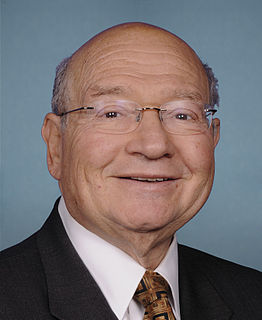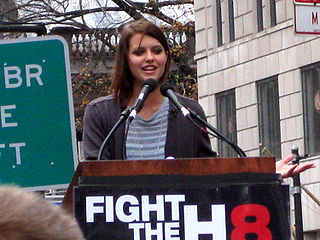A Quote by Ira Glass
Traditional broadcast media seems old-fashioned and vague to me. When I watch television news, I'm aware of what skilled journalists they are, but I find it hard because of the corny way they present it.
Related Quotes
The media has changed. We now give broadcast licenses to philosophies instead of people. People get confused and think there is no difference between news and entertainment. People who project themselves as journalists on television don't know the first thing about journalism. They are just there stirring up a hockey game.
Working with lots of old media clients, I've had a front-row seat on the ascension of new social players and the decline of traditional news outlets. And it's clear to me that old media has an awful lot to learn from social media, in particular in five key areas: relevance, distribution, velocity, monetization, and user experience.
The media is the only business in the world where the customer is always wrong. If you're a news consumer, if you're a customer, and you complain to them, they will tell you that you are not sophisticated enough to understand what they do, and they're tell you to go listen or watch somewhere else. They're not even really doing the news for you. They're doing news for other journalists and other people in government because that's their real audience.
The arrival of television established a mass-media order that dominated the last 50 years. This is a personal media revolution. The distinction between the old order and the new order is very important. Television delivered the world to our living room. In the old media, all we could do was press our noses against the glass and watch.
Broadcast TV has a very classy but old-fashioned way of doing television. That's what it's always going to be. But you've still got to introduce young talent and ideas and shows to the masses. That's the way you build a bigger and younger audience, introducing younger writers, comics, TV shows to viewers.
The Factor concept is very simple: Watch all of those in power, including and especially the media, so they don't injure or exploit the folks, everyday Americans. Never before in the United States had a television news guy dared to criticize other journalists on a regular basis. The late Peter Jennings, a friend, told me I was crazy to do it. "These people will not allow anyone to scrutinize them," he said. "They will come after you with a vengeance." And so they have.
I don't have a television in my house. I haven't owned one in years. In truth, it's about mental health for me. It's hard for me to have a television in the house because I'll just stay inside and binge-watch stuff that I don't even want to watch. I've learned when I don't have a TV, it forces me to go outside.
Who should regulate the media? Who should control the press? The commentariat agonises, as if the choice was between state control through some autocratic press law or a new Press Complaints Commission redecorated with false teeth. But there is another way. Let journalists regulate themselves.... Let's have a little democracy in the media. Even in the Murdoch papers, the number of journalists who are irretrievably lawless and callous is quite small. Most of the disasters at the News of the World happened because its editors treated their staff in the style of Muammar Gaddafi.
All these people talk so eloquently about getting back to good old-fashioned values. Well, as an old poop I can remember back to when we had those old-fashioned values, and I say let's get back to the good old-fashioned First Amendment of the good old-fashioned Constitution of the United States - and to hell with the censors! Give me knowledge or give me death!

































